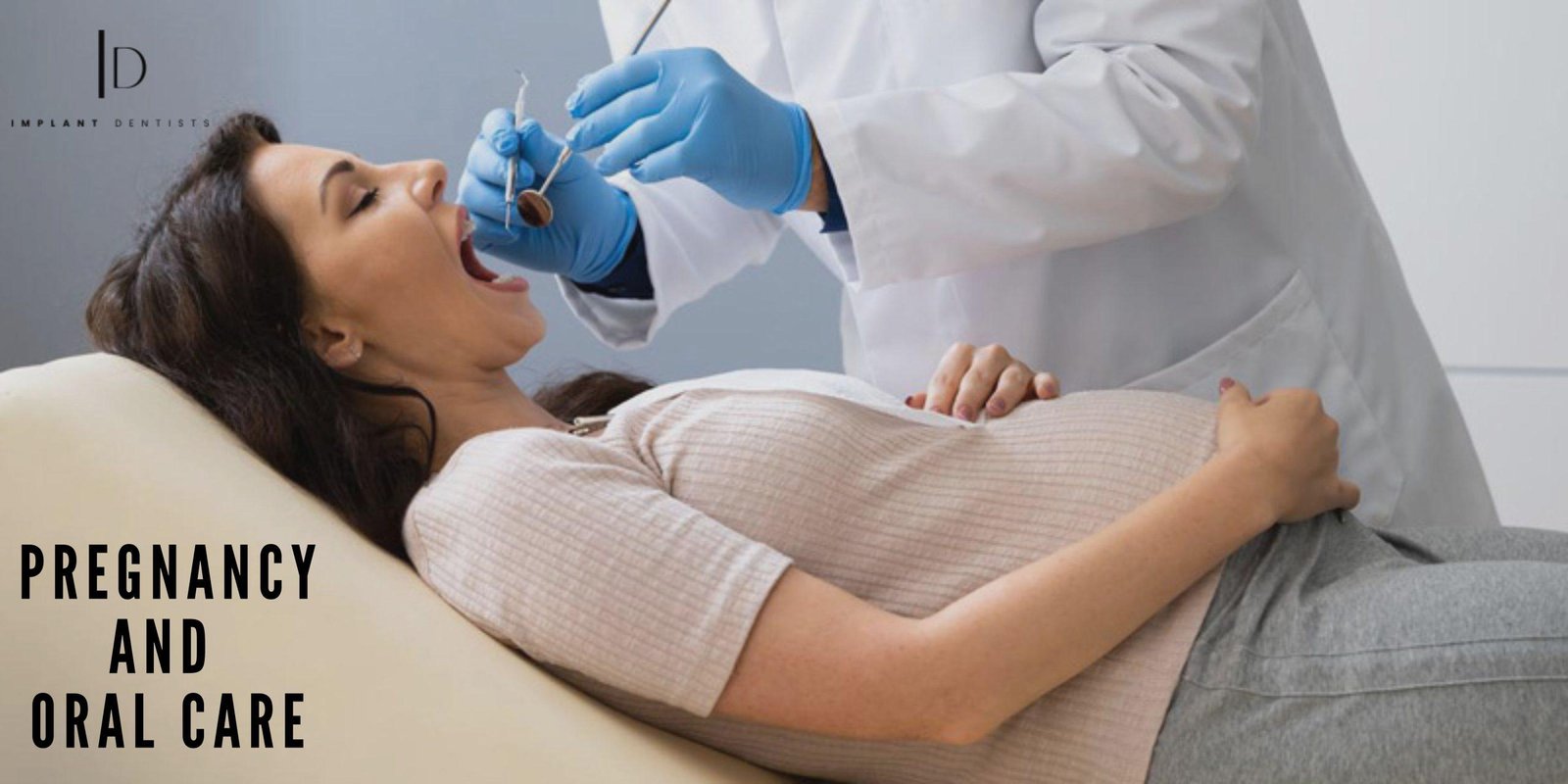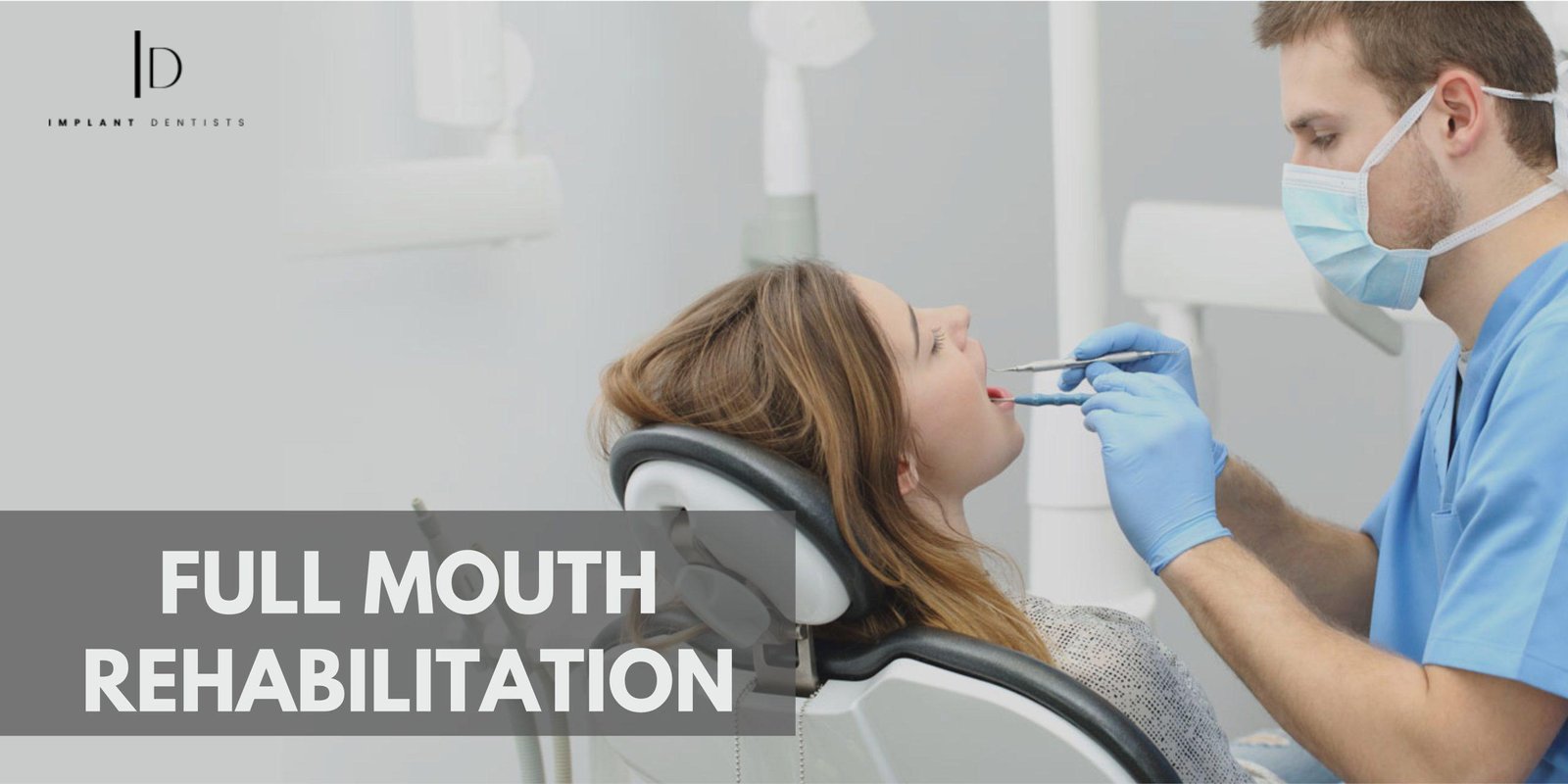Tag: Gum disease

Why Prioritizing Oral Health During Pregnancy Matters?
January 30, 2024
Implant Solutions for a Radiant Smile| Full Mouth Rehabilitation in Crewe, United Kingdom
January 16, 2024Full mouth rehabilitation is a comprehensive dental treatment that aims to restore oral health and functionality. In recent years, dental implants have played a pivotal role in revolutionizing full mouth rehabilitation procedures, offering patients in Crewe, United Kingdom. A lasting solution to various dental issues. Now, we explore the significance of implants in full mouth rehabilitation. The benefits they bring to individuals seeking a complete dental transformation.
Understanding Full Mouth Rehabilitation
Full Mouth Rehabilitation, also known as full mouth restoration, is a comprehensive and personalized dental procedure designed to address multiple dental issues. It restores optimal oral health, function, and aesthetics. This advanced and transformative treatment involves a meticulous combination of various dental procedures. This tailored to the unique needs of each individual.
Patients seeking Full Mouth Rehabilitation often present with a range of dental concerns, such as missing teeth, extensive tooth decay. Worn-down enamel, gum disease, bite problems, or a combination of these issues. The primary goal of Full Mouth Rehabilitation is to provide a holistic and integrated approach to address these concerns. This is ultimately enhancing both the functionality and appearance of the entire mouth.
Explore Dental Implants
Dental implants are artificial tooth roots that are surgically placed into the jawbone to support replacement teeth or bridges. There are several types of dental implants, classified based on various factors such as implant design, materials used, and the surgical procedure.
Here are some common types of dental implants:
- Single Tooth Implants: Used when a single tooth is missing, a single implant is placed into the jawbone, and a crown is attached to it.
- Multiple Tooth Implants: Used when several adjacent teeth are missing, implant-supported bridges are anchored to implants rather than natural teeth.
- Full Arch Implants: These are used when an entire arch of teeth (upper or lower) needs to be replaced. All-on-4 refer to the number of implants used to support a full arch of teeth.
- Zygomatic Implants: These implants are longer and are anchored into the cheekbone (zygoma) instead of the jawbone. They are used when there is insufficient bone in the upper jaw.
- Mini Implants: Smaller in diameter than traditional implants, mini implants are often used in situations where there is limited space or bone.
The Role of Implants in Replacing Missing Teeth
Dental implants play a crucial role in replacing missing teeth. This providing a durable and natural-looking solution for individuals with one or more missing teeth. The process involves surgically placing a metal post into the jawbone. It serves as a stable anchor for a replacement tooth or a bridge.
Here are key aspects of the role of implants in replacing missing teeth:
- Stability and Support: Dental implants offer stability and support comparable to natural teeth. The implant fuses with the jawbone through a process called osseointegration, creating a strong foundation for the replacement tooth.
- Improved Functionality: Unlike removable dentures, dental implants function like natural teeth. They allow for normal biting, chewing, and speaking, providing a higher level of comfort and functionality.
- Preservation of Jawbone: When a tooth is lost, the jawbone in that area can start to deteriorate over time due to lack of stimulation from chewing. Dental implants help preserve the jawbone by acting as artificial tooth roots and preventing bone loss.
- Natural Appearance: Implants are designed to look and feel like natural teeth. The replacement tooth, also known as a crown, is custom-made to match the colour, shape, and size of the surrounding natural teeth, ensuring a seamless and natural appearance.
- Longevity: With proper care and maintenance, dental implants have a high success rate and can last for many years, even a lifetime. This makes them a durable and long-term solution for replacing missing teeth.
Benefits of Implants in Full Mouth Rehabilitation
- Enhanced Aesthetics and Confidence: Implants provide a natural-looking appearance, restoring not only the functionality of the teeth but also the aesthetics. This, in turn, boosts confidence and self-esteem for individuals undergoing full mouth rehabilitation.
- Improved Oral Functionality: Dental implants allow for improved chewing and speaking abilities, providing patients with a level of comfort and functionality comparable to natural teeth.
- Long-Term Durability: One of the significant advantages of dental implants is their long-term durability. With proper care, implants can last a lifetime, making them a cost-effective and sustainable choice for full mouth rehabilitation.
- Stability and Strength: Dental implants provide a stable and strong foundation for the replacement of multiple teeth. This stability is crucial in full mouth rehabilitation, where the goal is to restore the entire dentition.
- Natural Feel and Functionality: Implants mimic the natural function and feel of teeth. This is particularly important in full mouth rehabilitation, as patients aim to regain the ability to bite, chew, and speak comfortably. Just like they would with natural teeth.
Conclusion:
In Crewe, United Kingdom, dental implants have become an integral part of full mouth rehabilitation, offering patients a transformative solution to various dental challenges. The combination of advanced technology and skilled dental professionals ensures that individuals seeking full mouth rehabilitation in Crewe can enjoy the benefits of a restored smile. This improved oral health, and enhanced overall well-being.

Understanding Dental Problems: Common Issues and Effective Treatments
December 12, 2023Maintaining good oral health is crucial for overall well-being. Dental problems can affect people of all ages, causing discomfort and impacting daily life. However, with advancements in dentistry, there are numerous effective treatments available for various dental issues. Now, we’ll explore common dental problems and the treatments designed to restore dental health.
Tooth Decay
Tooth decay, also known as dental caries or cavities, is a common oral health issue characterized by the gradual destruction of the tooth structure caused by acids produced by bacteria. It occurs when plaque, a sticky film of bacteria, builds up on teeth and interacts with sugars or starches from food, producing acids that attack tooth enamel.
-
Causes:
- Plaque build-up
- Poor oral hygiene
- Sugar and acid consumption
-
Treatment for tooth decay:
-
- Fluoride treatments: In the early stages of tooth decay, fluoride treatments may help remineralize the enamel and reverse the damage. Fluoride helps strengthen the enamel, making it more resistant to acid attacks.
- Dental fillings: If the decay has progressed and caused a cavity, the dentist will remove the decayed portion of the tooth and fill the cavity with materials such as composite resin, amalgam, or porcelain to restore the tooth’s structure and function.
- Dental crowns: For more extensive decay that has weakened the tooth, a dental crown may be necessary. A crown covers the entire tooth to protect and strengthen it.
Gum Disease
Gum disease, also known as periodontal disease, refers to an infection of the tissues that support and surround the teeth. It typically starts with the accumulation of plaque, a sticky film of bacteria that forms on the teeth. When plaque isn’t adequately removed through regular brushing and flossing, it can harden into tartar, which further irritates the gums.
-
Causes:
- Hormonal changes
- Smoking
- Diabetes
-
Treatment for Gum Disease:
-
- Professional Dental Cleaning: For mild cases of gum disease (gingivitis), a professional cleaning by a dentist or dental hygienist can remove plaque and tartar build-up, helping to reverse the condition.
- Scaling and Root Planing: This procedure involves deep cleaning below the gum line to remove plaque, tartar, and bacterial toxins from the root surfaces of the teeth. It helps to smooth the root surfaces, allowing the gums to reattach to the teeth.
- Medications: Antibacterial mouth rinses, antibiotic gels, or oral antibiotics might be prescribed to help control infection and promote healing.
- Surgery: In advanced cases of periodontitis, surgical treatments such as flap surgery (pocket reduction surgery), bone grafts, tissue grafts, or guided tissue regeneration may be necessary to restore damaged tissues and bone.
Tooth Loss
Tooth loss refers to the condition where one or more teeth are missing, either due to injury, decay, gum disease, or other oral health issues. Losing teeth can have significant impacts on an individual’s ability to chew food properly, speak clearly, and maintain a confident smile. It can also lead to various dental and oral health complications if left untreated.
-
Causes:
- Gum disease
- Trauma or injury
- Ageing
-
Treatment for Tooth Loss:
-
- Dental Implants: These are artificial tooth roots made of titanium that are surgically placed into the jawbone. They provide a stable foundation for replacement teeth (crowns) and can function and look like natural teeth
- Dentures: These are removable appliances that replace missing teeth and surrounding tissues. Partial dentures can replace a few missing teeth, while complete dentures are used when all teeth in an arch are missing.
- Bridges: A dental bridge consists of one or more artificial teeth anchored in place by crowns on the adjacent natural teeth. It “bridges” the gap created by missing teeth.
Oral Cancer
Oral cancer refers to cancers that develop in the mouth or oral cavity. This includes cancers of the lips, tongue, gums, inner lining of the cheeks, roof, and floor of the mouth. Oral cancer can manifest as a sore, growth, or ulcer in the mouth that doesn’t heal. Some common risk factors associated with oral cancer include tobacco use (smoking or chewing), excessive alcohol consumption, human papillomavirus (HPV) infection, prolonged sun exposure to the lips, and a diet low in fruits and vegetables.
-
Causes:
- Tobacco use
- Excessive alcohol consumption
- HPV (Human Papillomavirus)
- Sun exposure (lip cancer)
-
Treatment for Oral Cancer:
-
- Surgery: This involves removing the tumour and possibly some surrounding tissue. In advanced stages, surgery may involve removing lymph nodes in the neck as well.
- Radiation therapy: High-energy rays are used to kill cancer cells. It can be used alone or in combination with surgery or chemotherapy.
- Targeted therapy: This treatment targets specific abnormalities in cancer cells and may be used in certain cases.
Conclusion:
Dental problems can range from common issues like cavities to more severe conditions such as oral cancer. However, early detection and appropriate treatment can prevent complications and restore oral health. Regular dental check-ups, maintaining proper oral hygiene, and seeking prompt treatment for any dental concerns are essential for a healthy smile. With advancements in dental technology and various treatment options available, individuals can regain their confidence and maintain a bright, healthy smile for years to come.
